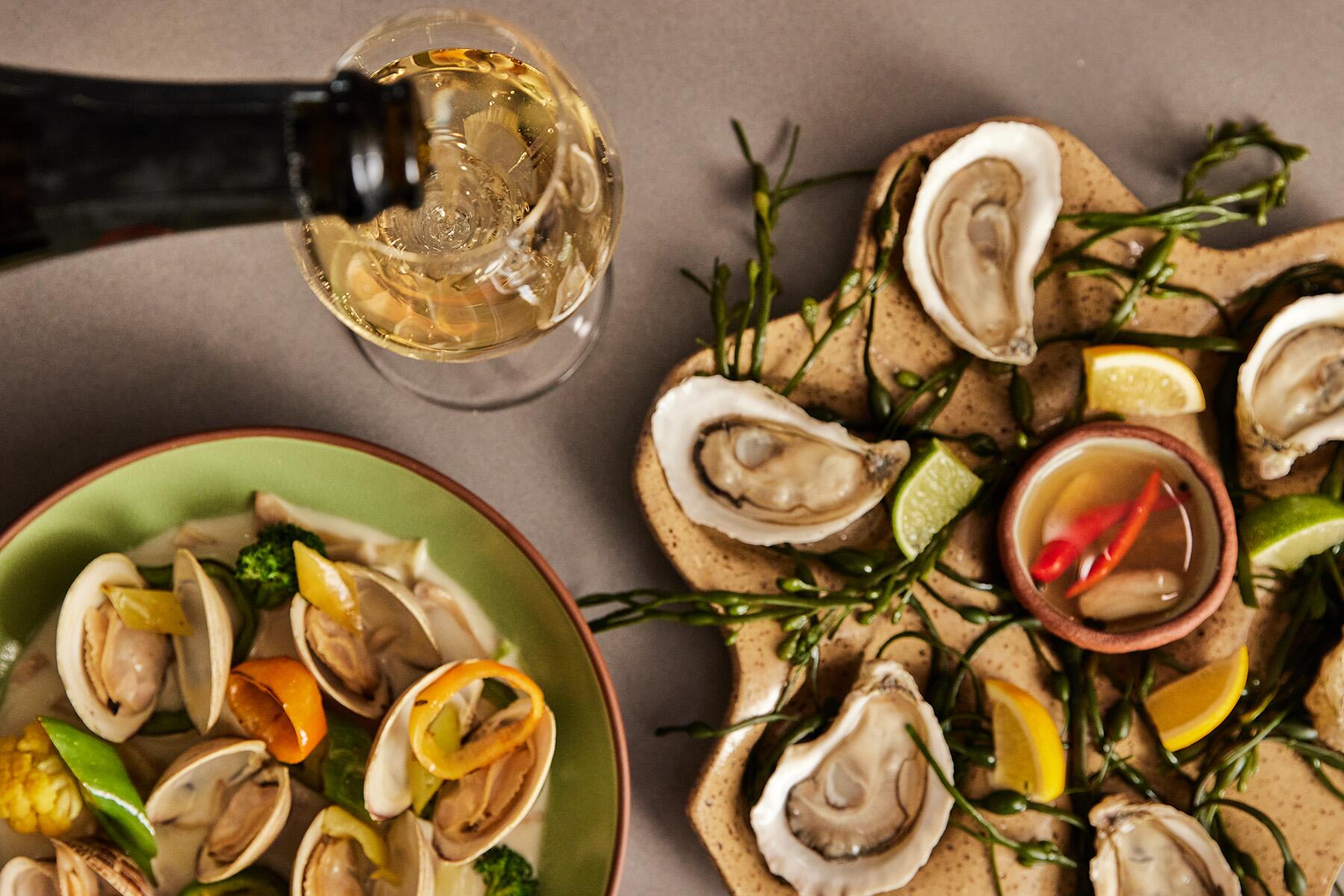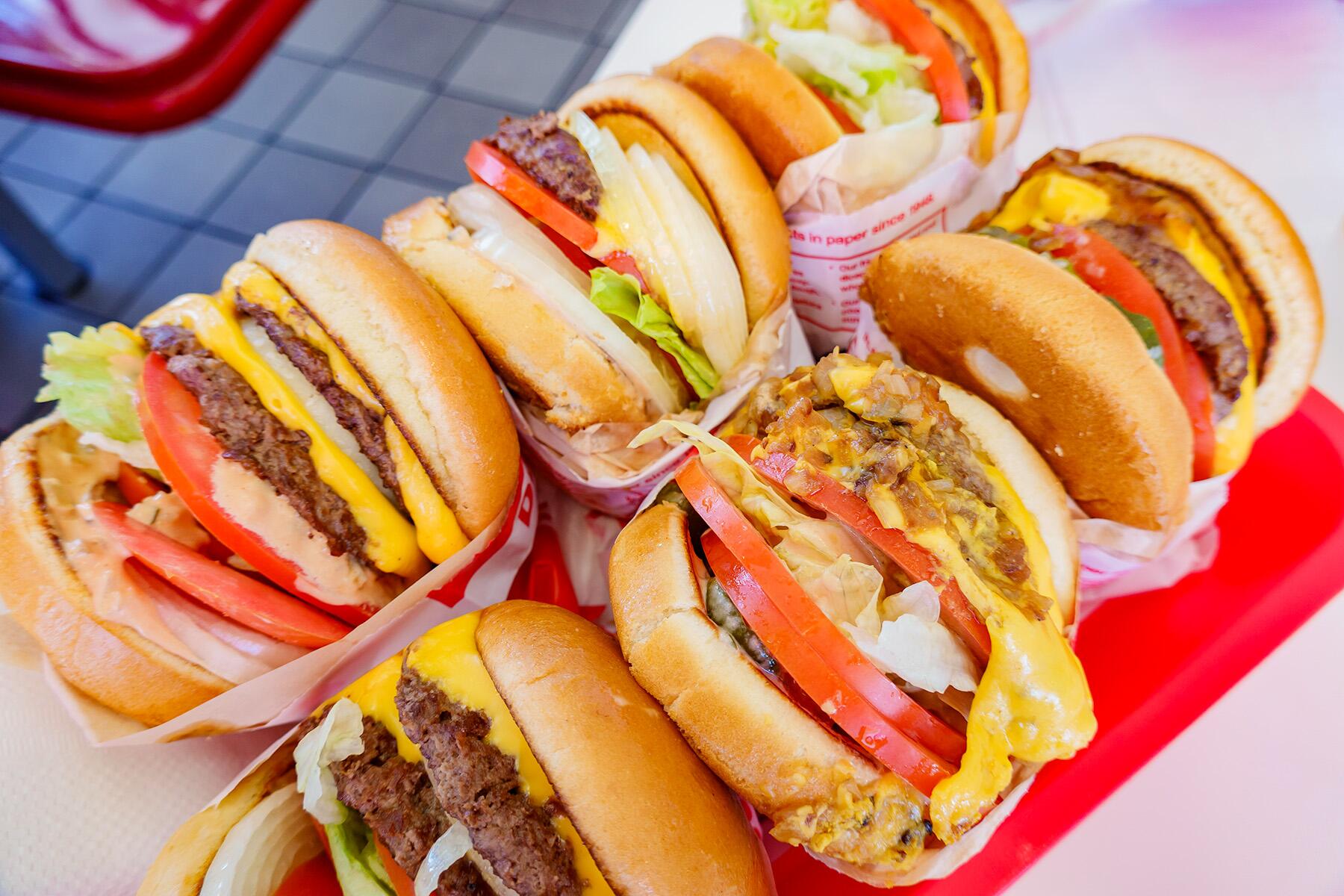New Orleans’ New York-style deli unites the communities of the city.
When my two East Coast friends schlepped the nine miles with me from the French Quarter of New Orleans to the Kosher Cajun, a New York-style deli and grocer, we initially didn’t see it in the suburban strip mall, although we were certain we’d arrived at the right address. Although it took up three storefronts, Kosher Cajun was inconspicuous from the outside. Inside, the seating area with its photos of past guests reminded me of the legendary Katz’s Deli in New York. Similar to Katz’s, at Kosher Cajun, you order from a chalkboard menu and pay at the register before taking a seat at an open table.
But unlike Katz’s Deli, Kosher Cajun’s menu features jambalaya and fried faux-shrimp with Cajun cocktail sauce. All the fixins, Cajun delights, and deli items to make Southerners, New Orleanians, and Jews happy.
On that mid-October evening in the New Orleans suburb, Metairie, the owner of Kosher Cajun, Joel Brown, pushed a corned beef sandwich on rye in front of our group. He also served us a plate of kosher fried faux-shrimp. Brown, who opened the deli in 1988, grew up in New Orleans in a conservative Jewish synagogue and longed to bring a taste of kosher cuisine to his hometown.
When I tried the meaty sandwich, Brown immediately wanted to know: “Does it taste like it does in New York? Is it the best you ever had?” It seemed Brown wanted the approval of this New York Jew.
Recommended Fodor’s Video
“It’s good. It’s different,” I said, processing the fact that the sandwich contained coleslaw and not traditional sauerkraut, an observation I voiced to Brown. It had certainly gotten my attention—and in a good way. He explained the sandwich could be made with either sauerkraut (a nod to the North) or coleslaw (a nod to the South).
As we dined, Brown spoke of the quality of the meat and how he had searched all over the East Coast to find the best supplier. He works with a wide network of kosher suppliers (if you name a city in the American South, he’ll tell you who provides their kosher food). It really was amazing corned beef.
View this post on Instagram
Next, he waited for me to try the fried faux-shrimp. I’m Jewish but don’t keep kosher, so I was the perfect person to critique the faux-shrimp. (Individuals who eat kosher follow specific rules based on Jewish law, such as not combining dairy with meat, and avoiding crustaceans such as shrimp and certain types of fish.) “Does it taste like real shrimp?” Brown wanted to know.
The faux shrimp was puffy, not greasy, and glorious. And I told him so.
I’ve had faux-shrimp at kosher weddings and events, and it’s never tasted this good. Brown created the shrimp dish because Jewish people keeping kosher in New Orleans often feel left out of the New Orleans dining experience—after all, the city is known for its gumbo, jambalaya, and gulf seafood dishes featuring shrimp and oysters, something which Jews keeping kosher don’t eat.
Kosher Cajun, explained Brown, brings together different cultures through food, appealing to both Jewish and non-Jewish people in New Orleans. Brown says he often meets couples where one partner is from New Orleans but not Jewish, while the other is Jewish but not from New Orleans. These couples visit Kosher Cajun to sample both the classic corn beef sandwiches and the restaurant’s unique fusion dishes like faux-shrimp, jambalaya, and kosher gumbo (when available).
As Brown observes, the existence of a restaurant celebrating both cultures through food makes these couples’ lives together seem more plausible and reinforces the beauty of their diversity in a city where Jewish people are only 2% of the population. Kosher Cajun is one of only three kosher eateries in New Orleans. The other two are Rimon at Tulane Hillel and Cafe Du Monde. Brown’s kosher items are so popular that he also caters at the Superdome for kosher guests in suites.
Since bringing home kosher pizza after a trip to the East Coast some 30 years ago, Brown never stopped being inspired.
The reaction from his friends made Brown realize there was a real need for a local kosher grocery store and restaurant in his hometown. The solution was not to schlep kosher pizzas from New York to New Orleans every time the craving struck.
In developing the menu for Kosher Cajun, Brown included kosher deli meat and bagels (though one of the staff members, Kim, is quick to note that the bagels aren’t made locally because no one can duplicate New York City’s water). Eventually, the grocery section expanded to include kosher babkas, beef jerky, and tchotchkes with sayings like “Shalom Y’all.”
But Brown isn’t just feeding folks. His presence in the community is bigger than that.
Kosher Cajun served as a shul (synagogue) for the two years while the city rebuilt after Hurricane Katrina. Services and Shabbat meals were free of charge. He stepped up again to donate kosher meals during COVID.
“He’s a regular and respected member of Congregation Beth Israel. That everyone who comes to town speaks very warmly and highly of him and Kosher Cajun as a credit to the community,” says Abra Kaplan, spokesperson for the Museum of the Southern Jewish Experience. “Certainly, as the only brick-and-mortar kosher restaurant/store in town at the moment (apart from Cafe du Monde, which is obviously not at all the same scope), it’s a very vital and important New Orleans Jewish institution.”




great info here! I need to go to New Orleans very soon!